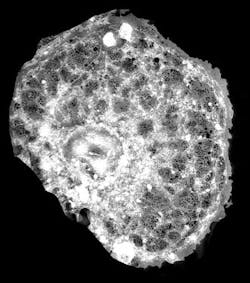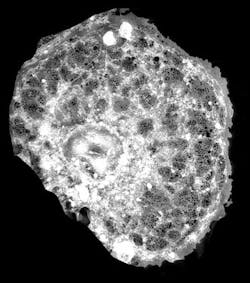EU project to develop optical instrumentation for studying the liver
The European Commission has confirmed approximately €3.7 million ($4.4 million) in funding for a new program in which 14 scientists will be developing new optical procedures to study the liver with high-resolution microscopy. The goal is to find out how medical drugs affect the liver and how the organ changes with advancing age. The project, called DeLIVER, is being coordinated by Bielefeld University (Germany), and will start in January 2018.
Related: Light Sciences Oncology begins trial of photodynamic therapy for liver cancer
The procedures to be developed in the project aim to be minimally invasive. As in endoscopy, new optical instruments will be developed and applied to study liver samples with high-resolution microscopy. In the long term, the methods should also be used to carry out microscopic examinations of liver cells directly in the body.
Thomas Huser from Bielefeld University's Faculty of Physics is coordinating the project. His Biomolecular Photonics research group is developing high-resolution microscopes that can make structures in body cells visible and accessible to research that traditional optical microscopes are unable to show. Other program participants from Bielefeld University are the Faculty of Biology and a medium-sized company in Bielefeld, LaVision BioTec, that is developing and manufacturing microscopes especially for biomedicine.
"DeLIVER offers young doctoral students an opportunity to work together with experienced scientists, and to use advanced technology and the most modern methods in physics," Huser says. In addition, they gain practical experience in industry during the time they spend with a company. "This prepares them specifically for both the academic and non-academic labor market," he adds. All of the young scientists will spend several months at the European partner universities and companies, as well as at the scientific partner institutions in the United States, China, and Australia.
The members of the program are Bielefeld University with the Faculties of Physics and Biology, the Vrije Universiteit Brussel (Belgium), Oxford University (England), the University of Birmingham (England), Gothenburg University (Sweden), and the University of Tromsø (Norway), as well as the companies LaVision BioTec (Bielefeld), Cherry Biotech (Rennes, France), Elvesys (Paris, France), and D'Liver (Tromsø, Norway). In addition, the following scientific partners are associated with the program: the National Institute of Biomedical Imaging and Bioengineering (U.S.), Hong Kong University (China), the University of Sydney (Australia), and Bayer AG (Leverkusen).
For more information, please visit www.horizont2020.de/einstieg-msc.htm.

